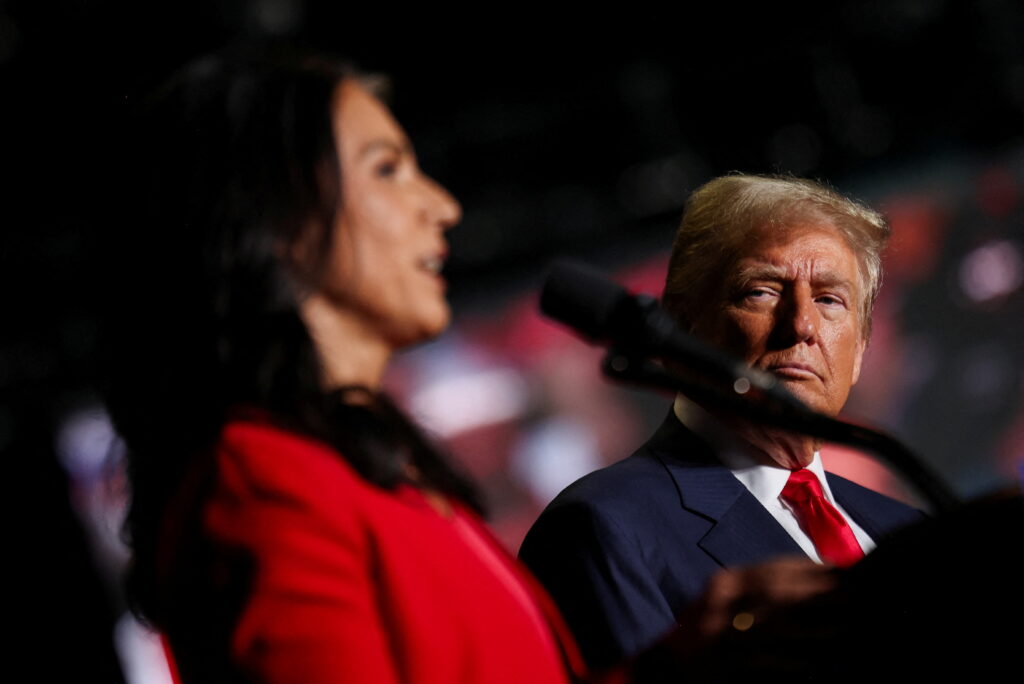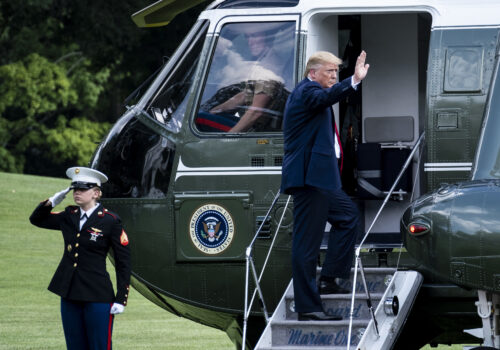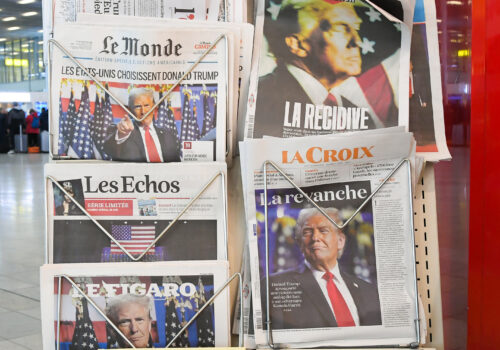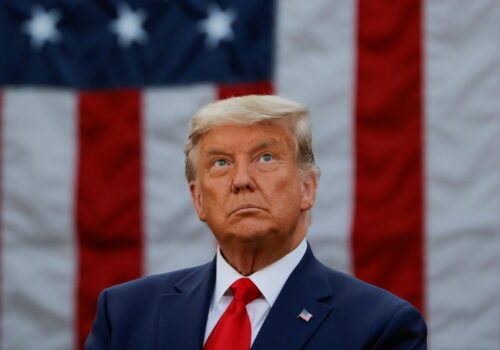There are plenty of jitters these days in Washington about President-elect Donald Trump’s designs on the size and effectiveness of our sprawling federal government. Nowhere are those concerns greater than among those intelligence professionals occupying what Trump disparagingly calls “the deep state.”
It’s hard to dispute that there’s federal fat to be trimmed, and Trump’s calling for cuts resonates with Americans well beyond his base. At what point, however, do those cuts hit the muscle and bone required for US global leadership at a far more dangerous time than Trump faced during his first presidency?
With wars in the Middle East and Europe, with escalating tensions with China, and with an accelerating contest for technology’s commanding heights, the answer is simple: A purge of career intelligence professionals would have far-reaching negative consequences at a moment when the United States needs even more capable, confident, and motivated espionage agencies.
That was the context today for the New York Times’ lead essay by John Sipher, an Atlantic Council senior fellow and twenty-eight-year veteran of the Central Intelligence Agency’s National Clandestine Service, and Michael V. Hayden, an Atlantic Council board member and former director of the Central Intelligence Agency and the National Security Agency. They worry “that Mr. Trump may be interested in wrecking the operation of the intelligence community.”
Write Sipher and Hayden: “Needless to say, the notion that the intelligence community is disloyal is false. The community is filled with skilled professionals committed to providing the president—any president—with the best possible intelligence, often at great personal sacrifice.”
In today’s Wall Street Journal, hardly a newspaper that echoes the New York Times’ opinions, the lead editorial questions Trump’s nomination of Tulsi Gabbard, former member of Congress and military officer, to lead his intelligence agencies at such a challenging moment.
The Journal’s editorial board based its concerns heavily on Gabbard’s record of opposition to policies that worked in the first Trump administration, so this piece might resonate more at Mar-a-Lago than Sipher and Hayden’s.
“Ms. Gabbard is on ample record as a dogmatic opponent of the policies that made Mr. Trump’s first-term foreign policy a success and that Democrats resisted,” the editorial board writes under the headline “How Tulsi Gabbard Sees the World.” “The former Democrat would be a risky fit as director of national intelligence.”
The editorial board based that judgment on the argument that the Director of National Intelligence’s job is to “convey intelligence fairly,” and that her “record suggests she is as likely to reject new intel and muddy the waters.”
The piece reminds readers that she defended Syrian dictator Bashar al-Assad against findings of chemical weapons use, about which Trump had no doubts. It notes that Gabbard accused Trump of wanting war with Iran, when his “maximum pressure” campaign achieved the opposite. She accused Trump, through his strike killing Iranian military commander Qasem Soleimani, of “pushing our nation headlong into a war with Iran.” Wrong again.
The editorial board argues that supporters of Trump’s foreign policy will “think twice about confirming her.”
Sipher and Hayden remind us that Trump’s promises to destroy “the deep state” predate his first term in the White House. His nominations and rhetoric underscore that he might be more determined to achieve that outcome in his second term.
Trump is right that the world has grown far too dangerous and unstable. History will judge him on how he addresses that reality. The incoming president’s dilemma is that this more perilous world will require him to lean on the proven patriots in intelligence and also those in the military whom he has disparaged in the past.
Frederick Kempe is president and chief executive officer of the Atlantic Council. You can follow him on X: @FredKempe.
This edition is part of Frederick Kempe’s Inflection Points newsletter, a column of dispatches from a world in transition. To receive this newsletter throughout the week, sign up here.
Further reading
Wed, Nov 13, 2024
Trump is inheriting a more dangerous world
Inflection Points By Frederick Kempe
China, Russia, North Korea, and Iran are coordinating in unprecedented ways, posing new challenges to the incoming US president.
Fri, Nov 8, 2024
What the world thinks of Trump’s return to the US presidency
New Atlanticist By
From Ukraine to Australia, Sweden to Singapore, Atlantic Council experts examine how people in different countries view the decisive win by President-elect Donald Trump.
Thu, Dec 5, 2024
Trump’s Nobel Peace Prize opportunity in Ukraine
Inflection Points By Frederick Kempe
Stopping Russia’s aggression in Ukraine will be Trump 2.0’s first test and opportunity, one that will have far-reaching consequences.
Image: Republican presidential nominee and former US President Donald Trump looks at former US Rep. Tulsi Gabbard as she speaks at a campaign rally in Greensboro, North Carolina, U.S. October 22, 2024. REUTERS/Carlos Barria



